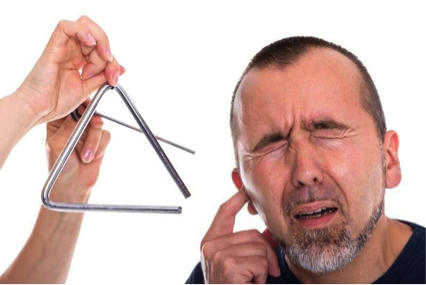Each month we will be doing an “Ask the Expert” blog post. If you have questions for our expert, send them to us at [email protected] and put “Ask the Expert” in the subject line.
Q: How long does a hearing test take?
A: The answer should be: it doesn’t matter because getting your hearing tested is well worth it! But that doesn’t really answer the question.
We tell our patients to set aside about an hour and a half for a hearing test and consultation. The test itself only takes about half an hour, but we want to make sure that we leave plenty of time to explain the test results and go over any questions. After all, what good is taking a test if you don’t understand the results in the end?

Q: How do I tell my Right and Left hearing aid apart?
A: It will vary depending on the exact style of hearing aid but there are two tips for telling the right and left hearing aid apart. The right hearing aid will have a red marking of some kind and the left hearing aid will have a blue marking. In the hearing aid world, red means right (remember both start with the letter R). But the other thing to remember is that the hearing aids are designed to only fit in one ear properly. If you get your hearing aids in and something does quite feel right, take them out and try the other ear. This sounds simple to an experienced hearing aid user, but for first time wearers this can be very tricky.

Q: Why can I hear my husband just fine, but I can’t understand my grandkids?
A: We get this question all the time! And this is actually one of the main reasons that people put off treatment for a long time. The rationalize, “I can hear most things, I’m just fine.” The reason that you can hear your husband but not your grandkids is because of what your hearing loss looks like. If I were to guess, I bet you have good low tone hearing. Your husband’s voice is at a pitch (frequency) were you have minimal to no loss. As we move up to higher frequencies, I would guess that your hearing loss increases. Which would explain why your grand-kids (and their higher pitched voices) are harder for you to understand.
This is actually the most common type of hearing loss. Roughly 90% of the patients that we see suffer from high tone sensorineural hearing loss. When we have this high tone loss we have a “clarity loss” more than a “hearing loss”. People often tell us “I can hear people, its just difficult to understand them.” Or they say, “One on one I’m fine, but in a group I really struggle.” These are signs of a high tone loss. The best part is that this type of hearing loss is very easy to treat and fix.

Q: Can I sleep in my hearing aids?
A: If you fall asleep with your hearing aids its not the end of the world. We don’t recommend sleeping in your hearing aids for a few reasons. First, you will waste battery life. If you are asleep you don’t need to leave the batteries running the whole time. This would be like leaving your car running in your driveway overnight. It just wouldn’t make a lot of sense. Second, you are more likely to lose them if you wear them to bed. Depending on how much you move around in your sleep, you run the risk of having the hearing aid fall out and losing it in your sheets. Thankfully, most new hearing aids come with a loss warranty. Meaning if you lose the hearing aid, you can replace it by paying a deductible and not the entire price of a new hearing aid. Make sure you check the specific details of your purchase agreement to see how long your “Loss Coverage” is in place and the amount of your Loss Deductible.
Q: How do you cure tinnitus?
A: Ringing of the ears (tinnitus) is very frustrating and effects millions of people every day. This ringing is caused by a deficit in your hearing. When we look at your audiogram (hearing test results) we can usually pinpoint the exact frequency of your ringing based on most profound point of your hearing loss.
There is no cure for tinnitus. There are pills and other remedies out there. Buyer beware, because you are likely just buying a sugar pill. The only way to deal with tinnitus is to cover it up and basically “trick” your brain into ignoring the ringing. This can be done by wearing a hearing aid consistently. A hearing aid will fix your hearing deficit and help train your brain to ignore the ringing. There are also hearing aids that have a specific feature to help mask tinnitus. This is an especially helpful feature for people that have more troublesome ringing in their ears. Contact our office if you would like to find out more about hearing aids with a tinnitus masking feature.


